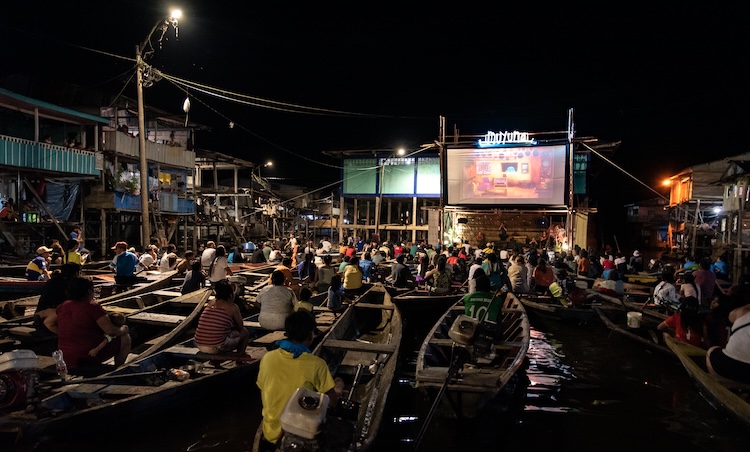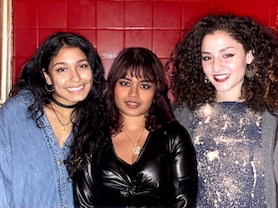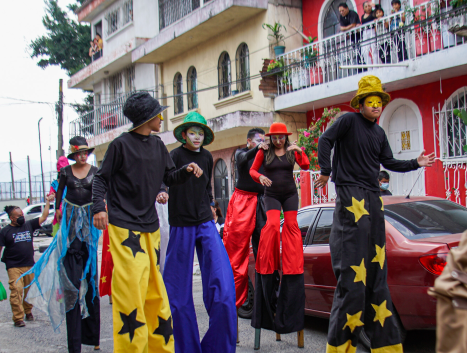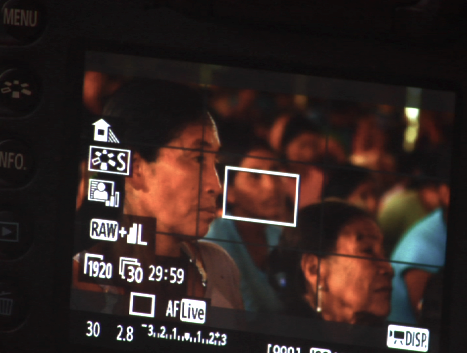
Muyuna Fest
Location: Peru
Daniel Martínez is a Hispanoperuvian filmmaker and artivist dedicated to developing community filmmaking workshops especially in Indigenous communities. His work leverages audiovisual storytelling as a powerful tool for cultural and environmental preservation. Blending ancestrality with innovation, he collaborates to co-create impactful narratives that bridge local communities and international networks. Recognized at prestigious festivals including San Sebastian and Hot Docs, his projects have also been featured by major media outlets, including The Washington Post, El País, the Chinese National TV or the Associated Press.
Livia Silvano is a director, producer and actress from the Belén neighborhood in Iquitos, nestled in the heart of the Peruvian Amazon. After creating two short films and winning Peru’s National Cinematography Competition, she is set to begin filming her debut feature, “Bufeo,” a reflective narrative addressing sexual abuse within her community. Her journey into documentary filmmaking began with the ICARO Project, which focuses on audiovisual creation in indigenous languages. Through this initiative, she gained experience in directing and producing films in her city, including “Isla Bonita” (Netflix), “Sonido Amazónico,” “No hay ida sin retorno.” Silvano has also explored acting, performing in local theater productions and starring in “Mochilas Negras” or “The Human Surge 3,” a film recognized at international festivals like Locarno and shot between the Peruvian jungle and Taiwan. Her beginnings as an artivist propelled her into cultural and artistic management, leading and promoting projects that positively impact her community and the rainforest. Notably, she co-directs the Muyuna International Floating Film Festival and the Belén Community Clown Festival. As a young visionary, Silvano continues to dream and create. Her passion for cultural management drives her to develop new initiatives, such as managing an independent cinema and designing a Cultural Center in her neighborhood.
Muyuna Fest 2025
The Muyuna Fest – International Floating Jungle Film Festival will hold its second edition in Iquitos, Peru, from May 12 to 25 2025, followed by traveling exhibitions in various Amazonian communities. Named after whirlpools formed in Amazonian rivers, the festival symbolizes convergence and vitality, bringing together voices to celebrate cinema and defend the jungles.
Muyuna Fest began with the Muyuna Project’s artivist efforts, which started through film workshops in indigenous communities to highlight Amazonian identity. In 2021, a workshop in Belén (a floating neighborhood in Iquitos) culminated in a screening of short films created by locals. This initiative expanded into the first Muyuna Fest in May 2024.
Belén serves as the festival’s base. This unique amphibious neighborhood spends six months of the year underwater due to the Itaya River’s seasonal rise. When the waters recede, elevated houses reveal dry spaces, creating a fascinating environment that has attracted filmmakers globally. The festival seeks to empower Amazonian locals to tell their stories through new media, shifting away from external portrayals. Artists, activist and filmmakers worldwide join to exchange knowledge, fostering an international network for action. Key activities include a floating laboratory journey from Pucallpa to Iquitos, where filmmakers create short films and community workshops in indigenous areas, helping youth reconnect with cultural identities. A Belén workshop will enable local youth to use audiovisual tools to address neighborhood issues.
The festival also activates Iquitos through events like an international film workshop, a script contest and a cinematic tour of iconic filming locations. Discussions on cinema and photography with global experts are planned. The central days in Belén feature a floating stage showcasing selected films. Locals and visitors gather in boats to watch films, enjoy performances and engage with cinema and jungle advocacy.
Muyuna Fest aims to amplify voices defending their territories through film. Its second edition in 2025 seeks to expand its reach, consolidating its impact in Belén and the Amazon.
Website: www.muyunafest.org
Instagram: @muyunafest @dani.muyuna






